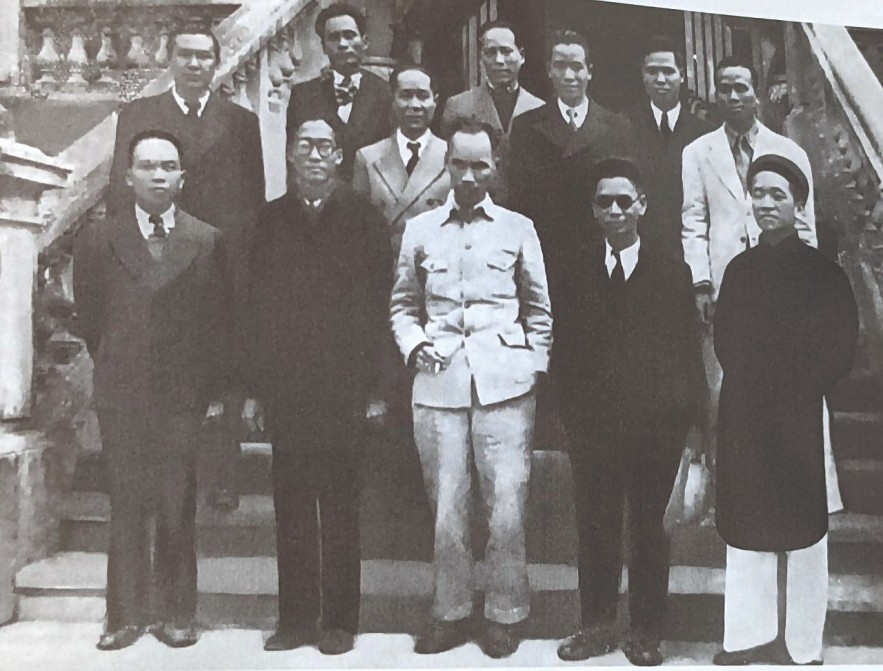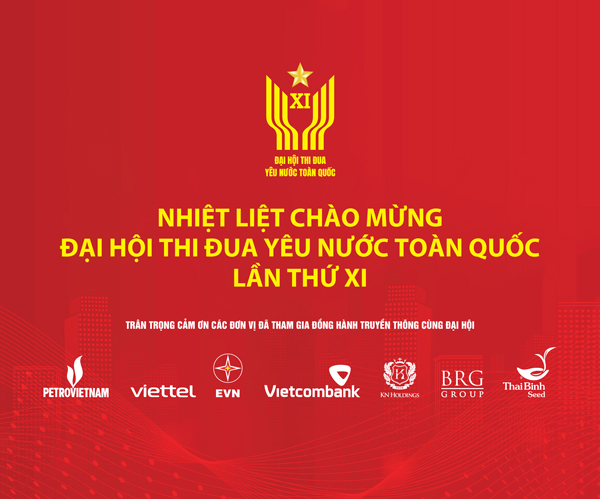Golden Week - the number of people's hearts
The MoF’s history begins with numbers. The seniors frequently refer to the amount of money in the National Treasury on its first day of operation. When the August Revolution was successful, the national budget was only 1,250,000 VND, of which 580,000 VND were destroyed.
The need to spend money on these tasks was enormous, but the budget was extremely tight. The Government's first financial measure was to issue National Order No. 4 on September 4, 1945, establishing the "Independence Fund," in the spirit of taking the citizens as the root, relying on the citizens, for the sake of the citizens. The first clause of the National Order states that "Establishing a fund in Hanoi and other provinces of the country to collect money and objects that the people are willing to help the Government to support the country's independence." Simultaneously, Mr. Do Dinh Thien (a patriotic bourgeoisie who later served as Ho Chi Minh's private secretary during his visit to France in the second half of 1946) was appointed to run the Central Fund in Hanoi.
 |
| President Ho Chi Minh and members of the Provisional Government after their first meeting on September 3, 1945. Photo: TL |
On September 19, 1945, the "Golden Week" was launched across the country under the auspices of the Independence Fund. On this occasion, Ho Chi Minh wrote in a letter to his countrymen, "Golden Week will collect gold from the citizens, especially the rich, to use for defense task, which is our urgent and most important task at this time."
"Golden Week" informed the entire country and the entire world that, while the Viet Minh soldiers on the frontlines were determined to sacrifice every drop of blood to maintain the country's freedom and independence, the people in the rear, particularly the rich, could also sacrifice to give some gold to serve the country. Thus, "Golden Week" had an important political meaning in addition to aiding national defense and finance..."
A wide variety of other forms of voluntary contributions, such as "Rice pots to feed the troops," "Soldiers' Winter Fund," "Soldiers' Paddy Sale," "Helping soldiers in distress," "Helping people to evacuate," "Popular Academic Fund," "Welcoming wounded soldiers to the village," "Supporting soldiers,", were established as a result of that source.
Tax reform for the sake of people
As soon as it was established, the Government and the President of Ho Chi Minh City announced the reduction of unreasonable taxes imposed by the colonial regime and proceeded to promulgate fair and reasonable new tax policies to replace the current taxes.
To unify financial management, the Government requires a fixed Decree every time an old tax is repealed or a new tax is imposed. Just 5 days after Ho Chi Minh read the Declaration of Independence, Ordinance No. 11 of September 7, 1945, was published, abolishing the personal tax, with the assertion that the personal tax was an unreasonable tax that ran counter to the spirit of the democratic - republican Government and should be abolished.
Following that, on September 27, 1945, the Government issued an Ordinance abolishing low license taxes (less than 50 VND per year). It was also permitted to remove the surcharge paid to the budget at all levels for households paying a higher license tax in order to reduce the contribution of production and business establishments.
To promote production and circulation, the Government also asked municipalities to repeal outdated and ineffective taxes such as market taxes, boat taxes, bicycle taxes, handcart taxes, bullock cart taxes, tricycle taxes, and so on. Continuing to review colonial-era taxes, the Government abolished the land tax on houses, workshops, and warehouses outside the city; the tax on postage stamps and school applications or exam applications; the bicycle tax was also declared not to be collected by the MoF, and the tax on manual roads was temporarily suspended; and taxes on castor oil, sesame, peanuts, and dyed shells were also abolished.
Subsequently, the land tax was adjusted by the Government to suit the actual situation, with two tariffs, one for the North with three classes of fields and one for the Central, with the distinction of fields entitled to and not entitled to irrigation water of the agricultural system. There was also an official exemption for flooded areas and French-occupied areas (South Central).
Simultaneously, in order to perform the task of tax collection, the Government's Decree of September 10, 1945, established the Department of Tariffs and Indirect Taxes under the MoF, and that date was later adopted as the Traditional Day of the Tax Sector and the Customs Sector. Previously, on May 29, 1945, by Ordinance No. 75/SL, the MoF's organizational structure was adjusted to suit the situation and tasks. As a result, the Treasury Department was established, and today, May 29 serves as the Traditional Day of the State Treasury.
Financial banknotes - Uncle Ho banknotes
On January 31, 1946, President Ho Chi Minh issued Decree No. 18b/SL authorizing the issuance of Vietnamese banknotes. Vietnamese banknotes (also known as Vietnamese Currency) were first issued on February 3, 1946, to widespread acclaim and support of people in the South Central provinces.
The eagerness to receive "Uncle Ho's banknotes" is the ultimate test of people's hearts with the revolution and independent Vietnam's monetary finance. On November 23, 1946, the first session of the National Assembly decided to allow the nationwide issuance of Vietnamese banknotes. Ho Chi Minh issued a call for national resistance less than a year later, on December 19, 1946, against the intention of retaking our country from the French colonialists.
Throughout the past 78 years, during the glorious revolutionary history of the nation, under the leadership of the Party and State, Vietnam's Financial sector has continuously strived to build financial independence, and self-reliance, taking the people as the root, relying on the people, and serving the people's interests, excellently fulfilling the task of ensuring financial needs for successful resistance wars, and making an important contribution to the building, development and the sacred integrity protection of the nation./.

















































